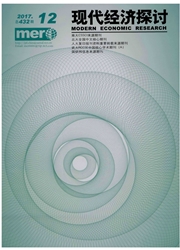

 中文摘要:
中文摘要:
选取中国家庭营养健康调查(CHNS)2004年、2006年、2009年城镇住户的调查数据,从微观视角实证分析货币政策分别对消费需求以及投资需求的影响。结果表明:紧缩性货币政策在很大程度上能够抑制消费需求,特别对婚房这类消费需求有显著的抑制作用,但对投资需求的抑制并不明显;货币政策对住房需求的调控效果具有较强的结构性和层次性。应该通过政策性住房金融机构来保证住房消费需求,同时在各商业银行的配合下,各种"窗口指导"措施要更多地针对住房投资需求,以此来实现货币政策对住房需求的分类调控。
 英文摘要:
英文摘要:
This article selects urban households survey data from China's household nutrition survey (CHNS) in 2004, 2006, and 2009, and constructs characteristics of housing price model to analyze effect of monetary policy on consumer demand and investment demand respectively from micro perspective empirically. The empirical results show that the tightening of monetary policy inhibits consumer demand to a great extent, but degree of inhibition on the housing investment demand is not obvious. The policy implication is that government needs financial institutions to ensure the housing needs of housing consumption, while commercial banks should take a variety of "window guidance" measures to regulate demand for housing investment, so that monetary policy can achieve the classification of housing needs regulation.
 同期刊论文项目
同期刊论文项目
 同项目期刊论文
同项目期刊论文
 期刊信息
期刊信息
